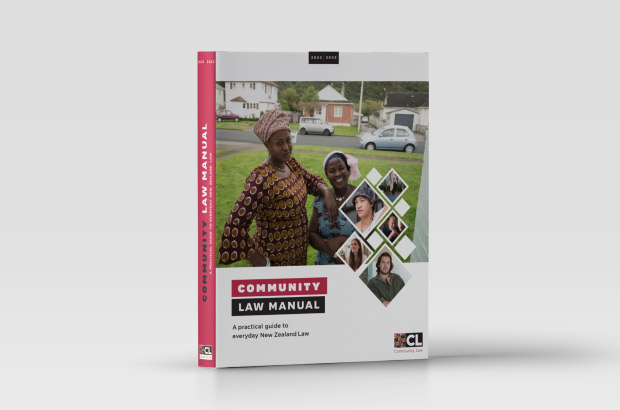Moving out: When and how tenancies end
The end of a fixed-term tenancy: Reaching the agreed end date
When does a fixed-term tenancy end?
Residential Tenancies Act 1986, ss 50, 60A-60C
A fixed-term tenancy of more than 90 days automatically continues as a new indefinite (periodic) tenancy after the end date of the fixed term, unless:
- you and the landlord enter into a new agreement or extend the existing one, or
- you give written notice to the landlord that you intend not to continue with the tenancy. This notice has to be given no later than 28 days (four weeks) before the end date of the fixed term, but not earlier than 90 days before the end date. You don’t need to say why you’re giving notice.
A fixed-term tenancy of 90 days (three months) or less finishes on the end date that’s specified in the agreement.
Can a fixed-term tenancy be ended early?
Residential Tenancies Act 1986, ss 50, 43B, 56D, 66
You can’t give notice to end a fixed-term tenancy early – you’re legally bound to keep paying the rent until the end of the fixed term, unless your tenancy agreement says you can leave early with an agreed notice period, or you and the landlord agree to end it early.
But, you could get someone else to take over your tenancy, allowing you to get out of it early. This is called “assigning” a tenancy. For more about this process, see: “How do I transfer my tenancy to someone else?” below.
You can also apply to the Tenancy Tribunal to have the tenancy ended early if there’s been an unexpected change in your situation – losing your job, for example – that means you’ll suffer severe hardship if the length of the tenancy isn’t reduced.
For more about this process, see: “When can I request to end the tenancy through the Tenancy Tribunal?”.
You can also end the tenancy early if you’ve experienced family violence (see: “Giving notice to end a tenancy due to family violence”).
How do I transfer my lease to someone else? (“assign” the lease)
Residential Tenancies Act 1986, s 43B
Whether you have a fixed term or periodic tenancy, you can request to assign your tenancy to someone else at any time. You have to make the request in writing by letter or email, and you need to include the contact details of the person you are suggesting to take over the tenancy.
The landlord has to consider all requests on a case-by-case basis, and respond to you in writing within a reasonable time period. If they don’t, they are breaking the law. They also can’t include a clause in your tenancy agreement that says you’re not allowed to apply to assign your tenancy.
They can decline your request, but they have to tell you why, and their reason can’t be unreasonable. If you think their decision was unreasonable, you can appeal the decision to the Tenancy Tribunal.
Can a whole tenancy be assigned to new tenants?
Everyone on the tenancy agreement has the right to request to assign the tenancy. This includes if you are the only person or people on the lease. The landlord can’t refuse your request just because it will mean everyone would move out at the same time.
Can my landlord charge me for assigning a tenancy?
Your landlord can charge you for reasonable expenses involved in assigning, but they have to be fair. The landlord has to give you an invoice with a breakdown of the costs, so you can see exactly what you’re being charged for.
When can I request to end the tenancy through the Tenancy Tribunal?
You can apply to the Tenancy Tribunal to end your tenancy early if there’s been an unexpected change in your situation that means you’ll suffer severe hardship if the tenancy isn’t ended early.
This includes things like losing your job, if you don’t have savings to help you continue paying rent. It also includes if the rent has increased by a lot, and it’s more than you would have reasonably expected the rent to go up by when you signed the tenancy agreement.
As well as showing you’ll suffer severe hardship, you’ll have to show the impact on you will be more than the hardship the landlord might suffer by having the tenancy end early.
If the Tenancy Tribunal does agree to end the tenancy early, it may order you to pay the landlord some money help cover some of the costs involved with finding new tenants.
Your landlord can also apply to have the tenancy ended early because of unexpected hardship, but they’ll have to show the impact on them will be more than the hardship you will suffer by having the tenancy ended early.
Example: Reasonable conditions and the need for agreement
Case: [2021] NZTT 4299844
The tenant lived with her partner and kids. She texted her landlord that she was breaking up with her partner and wanted to leave the tenancy, asking if she could transfer it to him. The landlord replied that the tenancy would need to be changed if she was leaving. After providing a reference for her new flat application, the landlord emailed the tenant saying she needed to pay overdue rent and repair some property damage to end the tenancy. The tenant didn’t do any of these things.
The tenant argued she had been released from the tenancy on the day she texted saying she wanted to leave. But the Tribunal found that this wasn’t enough for an assignment. This was because she had only asked if it was possible to assign. She didn’t give more detail about it and her intention to go ahead with it, so there was never an agreement about it between her and the landlord.
The Tribunal went further and said that even if the landlord and tenant had concluded an agreement, it came with the conditions to pay overdue rent and repair damage. The Tribunal found that these were reasonable conditions and they hadn’t been followed.


